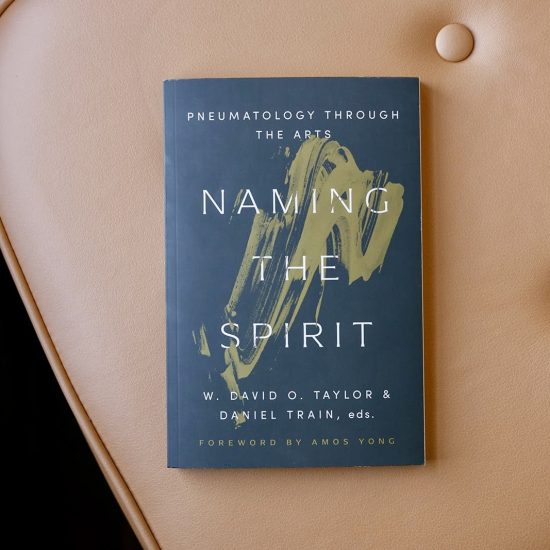

THE EMANCIPATION OF GOD: Postmarks on Cultural Prophecy. By Walter Brueggemann. Edited by Conrad L. Kanagy. Minneapolis, MN: Fortress Press, 2024. Xviii + 256 pages.
Walter Brueggemann continues to share wisdom with readers even as he reaches the twilight years of his life. Books continue to emerge, many of which involve making available either previously unpublished materials or reformulating materials into books, offering them to new audiences. I have read and reviewed a number of those works. That these works continue to get published by major religious publishers suggests that Brueggemann’s influence has not waned. Therefore, we continue to be blessed by his biblical scholarship, especially regarding the Old Testament, which is his academic specialty, as well as his wisdom on matters of faith and life itself.

Robert D. Cornwall
The Emancipation of God: Postmarks on Cultural Prophecy, which is edited by Conrad Kanagy, offers us new material that speaks to current areas of concern. The essays, most of which are brief, were originally offered as blog posts. As a blogger myself, I know that these kinds of posts can have immediate application. This collection of brief essays was brought together by Conrad Kanagy, the author of a very insightful biography of Brueggemann titled Walter Brueggemann’s Prophetic Imagination: A Theological Biography. I highly recommend reading that biography as it gives the reader important insight into Brueggemann’s faith and worldview that stands behind his biblical studies. This particular volume is the second in a collection that Kanagy has put together. The first volume, which I have not read, is titled Real World Faith (Fortress Press, 2023). Kanagy suggests that in these collections, “we get to see the craftsman at work. And as always, we are brought into the presence of a god whose entire intent and full energies are the emancipation of all creation from the empires and powers that have imposed themselves upon us and dimmed our prophetic imaginations” (p. ix).
Most readers of this review will know the name and influence of Brueggemann. As for the editor of these volumes and the author of his biographer, Conrad Kanagy, he is a professor of sociology at Elizabethtown College. His work focuses on American and global Christianity, and it was in that regard that he discovered the work of Brueggemann. These two collections of essays form, as Kanagy notes, bookends to his biography of Brueggemann. The reveal, he suggests, Brueggemann’s “formation, his hermeneutical method, and his deeply held beliefs about the biblical text and the God of the text” (p. viii).
The collection found here in The Emancipation of God, is composed of twenty-five chapters or posts. They are divided into three parts, each of which speaks to the work of emancipation. Part I is titled “The Emancipation of God.” Part II is titled “The Emancipation of the Church.” Finally, Part III carries the title “The Emancipation of the Neighborhood.” Each of the chapters explores an element of God’s work of emancipation. It might feature a review of a book that Brueggemann was reading at the time or some event happening at the moment. Whatever the situation at hand, it serves as a springboard to a conversation about Scripture, often it is a reading from the Old Testament. Those who know Brueggemann from his writings or his speeches and sermons would expect nothing less than this. Kanagy points out that the first essay in each of the three parts “is strategically placed,” as these essays “better than any of the others” represent “the critical theme of emancipation of God, church or neighborhood” (p. xviii).
One thing that has become clear in reading Brueggemann’s works is that he loves the Bible. He believes it has a message that continues to speak even today. Thus, he has a very high view of Scripture, higher, one might say, than many who claim to defend the inerrancy of the Bible. As Kanagy points out, something I know to be true in my observations and engagements with Brueggemann is that “though you may not like where he ends up, he always does by beginning and ending with the biblical text. The essays in this volume are no exception!” (p. xviii). The issue at hand, of course, is that of interpretation. Brueggemann points out that the Bible offers several different voices that appear to contradict each other at points. Therefore, he writes: “As often happens in scripture we are left with texts in deep tension if not in contradiction with each other. The work of reading the Bible responsibly is the adjudication process of these texts that will not fit together” (p. 7). As he points out “every reading of the Bible — no exceptions — is an act of interpretation” (p. 8).
One essay that I found very interesting in this regard is found in Part II, “The Emancipation of the Church.” Titled “On Gerrymandering Texts,” it addresses the tendency of clergy to skip over problematic texts, whether that is by the design of the lectionary or the pastor. Thus, he writes: “I understand that no pastor wants to read the hard stuff aloud; neither do I. I get it that no congregation wants to hear the hard stuff; neither do I as a congregant. And so we gerrymander, innocently attentive, with regularity. And we are left with a cushy gospel of love, sweet love. No exclusions in the end!” (p. 145). However, he later writes that “Gerrymandering is a willful forgetting of what can be said and often must be said in the church. The church is to receive ‘the whole counsel of God,’ not simply the liturgist’s preferences or the congregation itself (Acts 20:27)” (p. 147).
It is difficult to summarize a book like this other than to say that what one finds here is what you would expect from Walter Brueggemann. The essays reflect his deep biblical scholarship, his prophetic imagination, his engagement with the contemporary world, his reading of newspapers and books, and his deep and abiding faith in God. As anyone who has read Brueggemann or heard him speak knows, he doesn’t pull his punches. He speaks prophetically to the issues of the day. He reminds us constantly that God is concerned about those on the margins. He contrasts the prophetic imagination that he develops in several places with what he terms pathetic imagination. Thus, “Prophetic imagination always troubles; pathetic imagination, to the contrary, submits to present reality and never disturbs” (p. 165). Pathetic imagination seeks to domesticate social possibilities for the future by inviting the church to conformity.
In the conclusion to The Emancipation of God, Brueggemann acknowledges Kanagy’s shrewd organization of the book around the theme of freedom. He writes that “it is the ongoing work to make the case that ‘freedom’ is the core theme of the Bible, even though freedom in the Bible is cast in terms of covenantal fidelity and not in terms of radical autonomy of the Enlightenment” (p. 251). What Brueggemann points out in this reflection is a good summation of the book. Here in The Emancipation of God is vintage Brueggemann. It is deeply engaged with the Bible, affirming its contemporary implications. It is a prophetic word to our present realities. It is expressive of a deep and abiding faith in God. Thus, The Emancipation of God may be a collection of blog posts written recently, but it is also a word that if attended to will reap great rewards for those who are willing to engage with Brueggemann’s mind and heart.
This review originally appeared on BobCornwall.com.
Robert D. Cornwall is an ordained minister in the Christian Church (Disciples of Christ). Now retired from his ministry at Central Woodward Christian Church (Disciples of Christ) of Troy, Michigan, he serves as Minister-at-Large in Troy. He holds a Ph.D. in Historical Theology from Fuller Theological Seminary and is the author of numerous books including his latest “Second Thoughts about the Second Coming: Understanding the End Times, Our Future, and Christian Hope” coauthored with Ronald J. Allen. His blog Ponderings on a Faith Journey can be found at www.bobcornwall.com.





